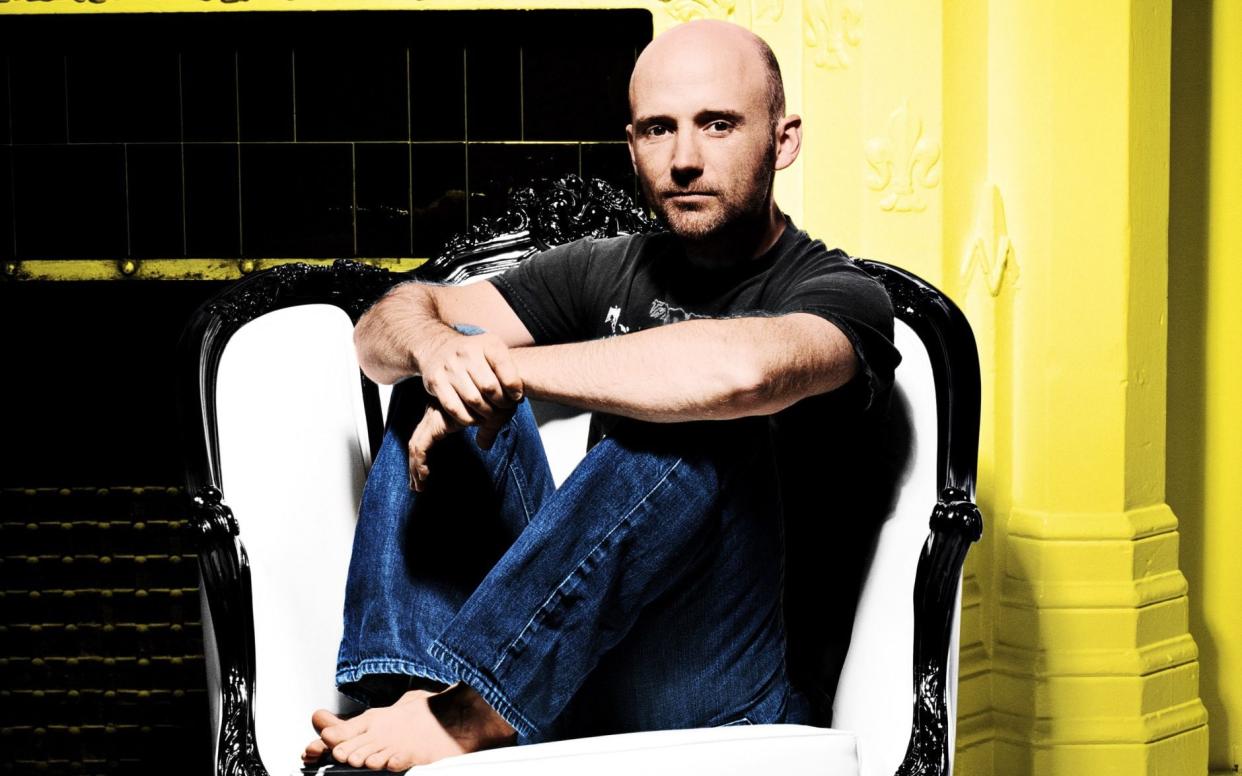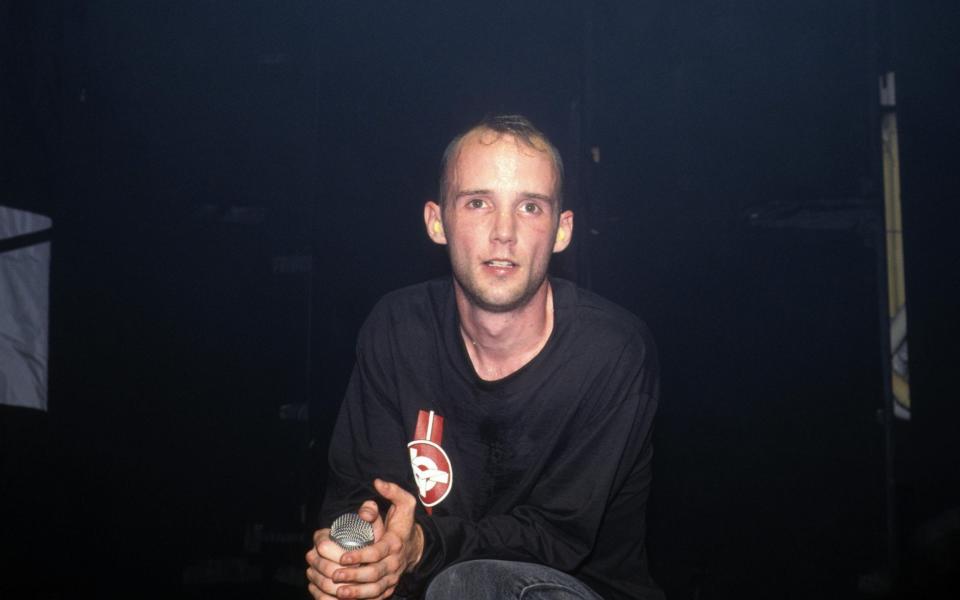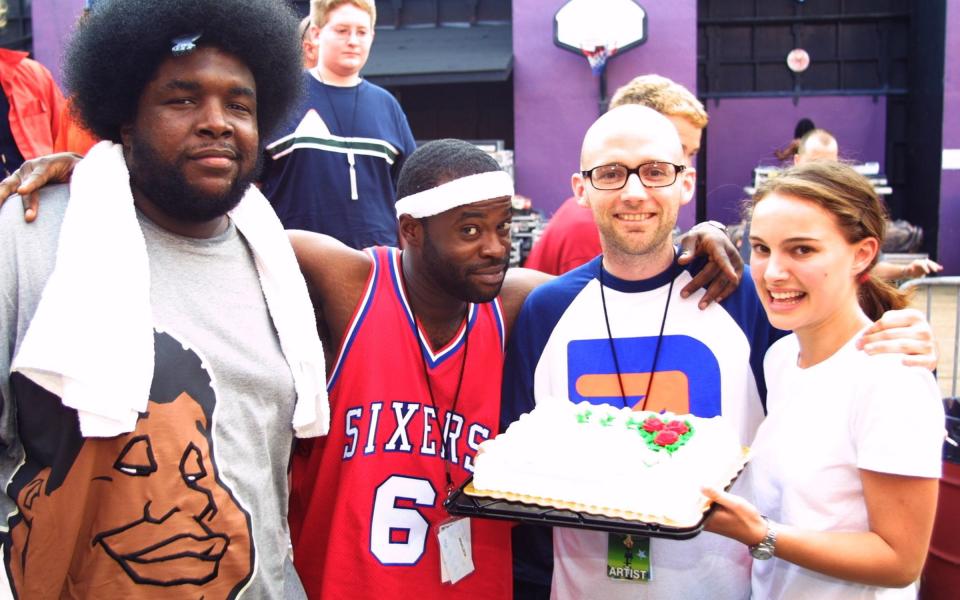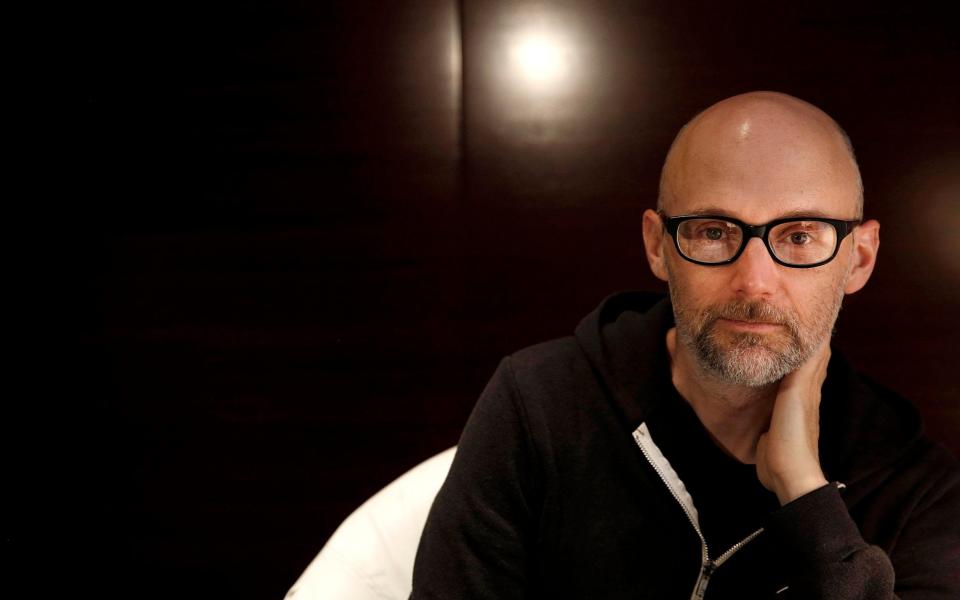He’s preachy and pretentious – but does Moby deserve to be the most hated man in pop?

- Oops!Something went wrong.Please try again later.
- Oops!Something went wrong.Please try again later.
- Oops!Something went wrong.Please try again later.
In the freezing gloom beneath a bridge in London’s King’s Cross Richard Melville Hall was looking for love. Or, failing that, sex. If it came to it, he’d probably have settled for a tear-streaked canoodle in the shadows.
“Standing in the rain in King’s Cross at 1am, I realised that I could pay this beautiful woman to come back to my hotel,” the techno-pop vegan otherwise known as Moby would recall of the autumn 1999 incident, which followed a concert at the nearby Scala. “I was drunk and lonely and wanted to feel another person next to me.” Oh lordy.
Moby shared the story in his 2019 memoir, Then It Fell Apart. The point of the anecdote was apparently to convey the depth of his loneliness at a time when his career was turning stratospheric thanks to his album Play.
And yet the prostitute-under-the-bridge tale lands strangely. We’re supposed to empathise with Moby – the on-the-up pop star with a platter of hit singles (including the Twin Peaks-theme sampling Go). It appears not to enter his mind that our sympathies might lie with the prostitute ogled in the middle of the night by a furtive-looking bald man (the encounter ends with Moby spotted by someone from his record label and slinking away).
Then It Fell Apart inflicted huge damage to Moby. Two years on, his reputation has yet to really recover. Undeterred he is back with an orchestral greatest hits collection, Reprise, and a new autobiographical film, Moby Doc.
The latter is described by one reviewer as “a self-important look at one musician realising his own insignificance”. And that’s one of the kinder reactions to a movie in which figures such as David Lynch line up to sing Moby’s praises.
“Why in the world would I want to make a documentary about myself?” Moby considers early in the running time. “And I think that’s a pretty legitimate question.”
Moby Doc is both a slightly plodding recap of Moby’s rags to riches life – and also a honkingly un-self-aware monument to aggrandisement. Director Rob Gordon Bralver films “staged reenactments” in which, to quote the Hollywood Reporter, actors depict “improvised versions of Moby’s mother, her string of unappealing boyfriends and wee Moby”.
“Moby’s buddy David Lynch makes several appearances against eerie backdrops,” the review continues. “[He is] usually repeating information provided in previous segments and offering unpleasant reminders that most of Moby Doc was shot as if by an art student from the Eighties who just discovered early David Lynch.” Even Moby fans could be forgiven for running in the opposite direction.
If Moby Doc portrays the artist as pretentious and oblivious then it is merely completing the task begun by Then It Fell Apart. The book’s most notorious scene opens with the musician – a distant descendent of Moby Dick author Herman Melville – coming off stage after a show in Austin, Texas. He is surprised, he writes, to discover teenage actress Natalie Portman at the backstage door. Portman “smiled and look straight into my eyes”.
“This was confusing. I was a bald binge drinker who lived in an apartment that smelled like mildew and old bricks, and Natalie Portman was a beautiful movie star. But here she was in my dressing room, flirting with me.”
He later recalled visiting her at Harvard University, where she was an undergraduate. In a Mills & Boon-esque passage Moby describes them “kissing under the centuries-old oak trees. At midnight she brought me to her dorm room and we lay down next to each other on her small bed. After she fell asleep I carefully extracted myself from her arms and took a taxi back to my hotel."

Portman was 18, Moby 35. And when Then It Fell Apart was published, she turned out to have a very different take on their interactions. “I was surprised to hear that he characterised the very short time that I knew him as dating because my recollection is a much older man being creepy with me,” she told Harpers Bazaar.
“He used this story to sell his book [which] was very disturbing to me. It wasn’t the case. There are many factual errors and inventions. I would have liked him or his publisher to reach out to fact-check.”
Moby pushed back, saying he and Portman “did, in fact, date”. “I can’t figure out why she would actively misrepresent the truth about our albeit brief involvement,” he continued on Instagram.
The irony is that Portman merely has an extended cameo in Then It Fell Apart. The autobiography is really about Moby’s self-loathing, his drugs and alcohol addiction, his difficult relationship with his family (halfway between drunk and hungover he misses his mother’s funeral). But the Portman controversy defined the book and Moby. And it catalysed the sense among many that there was something inherently iffy about the musician.
Moby hate could pop up in the weirdest of circumstances. One source of rancour was his use of old African-American samples on hit singles such as Natural Blues and Honey.
This led to accusations of cultural appropriation – long before cultural appropriation was even a concept. Interviewing the electronic artist James Blake early in his career, for instance, I wondered how it felt to be described as the “British Moby”. Blake’s response was a polite yet heartfelt rant. “British Moby” was apparently not where he saw himself in five years.

“There is a very big difference between what Moby has done and what I did,” he said. “Some of the Moby samples are a lot more accessible and cynical. He’s not changed the song very much. What he’s done is taken an already absolutely astounding melody that has been written, created and recorded by someone in the Thirties and, without wanting to simplify it, put a backing track on.”
Blake was aghast at the suggestion he was doing something similar. “I used a very small snippet of a vocal and recontextualized it completely. It wasn't cynical at all. One of the songs Moby sampled [Natural Blues]...it doesn't need what he did to it. It is already amazing song. He didn't sample it. He put a backing track behind it."
Things turned slightly Curb Your Enthusiasm a few years later when I was interviewing Moby and he mentioned that he’d tried to arrange for James Blake to sing on his latest record.
“With James Blake, I had my manager contact him a few times. We never heard back,” said Moby. “Which could mean any number of things. Maybe the email never went through, maybe his manager changed emails. Maybe James Blake hates me and everything I stand for."
“Hate” might be too strong a word, I thought. But clearly Blake is unlikely to have rushed out for Moby’s new album. Not that I had the heart to explain that to Moby.

Then there were the preachy essays Moby would slather all over the inlays to his records. Back when sleeve notes were a thing, his signature move was to bundle up interminable, dishwater-scented sermons into his releases.
This could be a bit much. As a starving student living off own-brand beef burgers and Findus Crispy Pancakes, I once found myself listening to Moby’s Everything Is Wrong while reading the liner-notes, in which he argued “it doesn't make sense to consume animal products”.
He may have had a point. Yet it felt like Moby was camped outside shouting through the letterbox as I was tucking into a charred minced-beef and onion pancake. Talk about not knowing your audience.
Moby has never been accused of any crimes. Were there skeletons in his closet they would have emerged, rattling into the light, after the Natalie Portman controversy. And no matter what James Blake may think of the producer, his best work has a transcendental ache.
There is God Moving over the Face of the Waters, where a Philip Glass-style repeating piano pattern is paired with swooning electronic strings. It’s overpoweringly emotive – as director Michael Mann understood when using it to soundtrack the climactic de Niro v Pacino sequence at the very end of Heat.
That same mix of melancholy and wonder infuses his 1995 single When It’s Cold I’d Like To Die. Here was a meditation on death and grief from someone who knew what he was writing about, having lost his father in a road accident when he was two years old.
A heart of purest marble would meanwhile be required to resist Shot In The Back Of The Head from his 2009 LP, Wait For Me, featuring a video directed by David Lynch (Moby: “it's a song that will never be played on the radio and the video is by David Lynch so it will never be played on TV, and that's the joy of it”). For an artist who comes across as terrible at reading the room, Moby has an incredible facility for evoking the essence of sadness, loss and despair.
Moby has had a sometimes difficult life. His impoverished childhood was followed by years of professional struggle before Play made him a star in 1999. He now lives in monastic solitude in the hills above Los Angeles, occupying his time making smoothies and composing music.
Smoothies and soundtracks in the Hollywood Hills: it sounds like a Halcyon existence. And a fittingly minimalist lifestyle for an artist who is by all accounts over his addictions and committed to filleting the drama out of his daily regime. But given the many controversies and the degree of dislike he elicits from complete strangers, it also feels a little bit like self-imposed exile.
Reprise is out now on Decca

